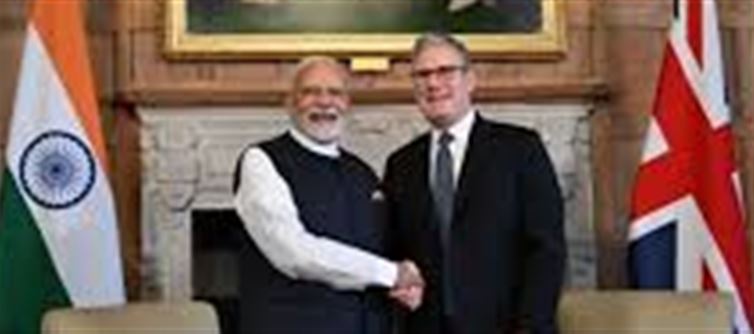The free trade agreement was sealed between
india and
britain on
thursday after three years of negotiations and tireless hard work. On one hand, while PM Modi said that this will give
india a big market, on the other hand, the
british media also praised the India-UK FTA. Along with this, it was said that this will increase the pace of GDP and
india will get a big market in the rapidly emerging world.
The
british government called it a historic agreement and said that this will ensure thousands of jobs and exports. Almost all the
media in
britain have called the free trade agreement a successful step after Brexit. Let us know what the
british media said on this deal-
On the India-UK FTA, The Times said that this agreement is worth the effort. This is because it gives
britain a huge market, which can be the second largest market after
china by 2050. He made
people realise the power of New
delhi by reminding them of the historic incident of Gandhi's boycott of foreign clothes and buying Khadi during the
british Raj and said that in 2022,
india will overtake
britain to become the fifth largest economy in the world.
Brexit is succeeding
Britain's Daily Express has written while singing praises of the India-UK Free Trade Agreement that this agreement between the two countries will make those in favour of staying in the
european union choke on their cornflakes. Because this has been possible only after leaving the EU, which shows that Brexit has really been successful.
How will GDP benefit?
In fact, after this agreement, the customs duty rates on
indian products in
britain will now come down from 15 percent to 3 percent. With this, the bilateral trade between
india and
britain is targeted to reach around $ 120 billion by 2030. However, it will take one year to be implemented.
But The Financial Times says that the
british automobile sector is disappointed with the FTA. This is because the
indian import duty on
petrol-diesel cars will be reduced by only 10 percent by 2031. Apart from this, strict limits (quotas) will also be imposed on the sale of
british cars in
india, which will gradually decrease further by the year 2046.






















